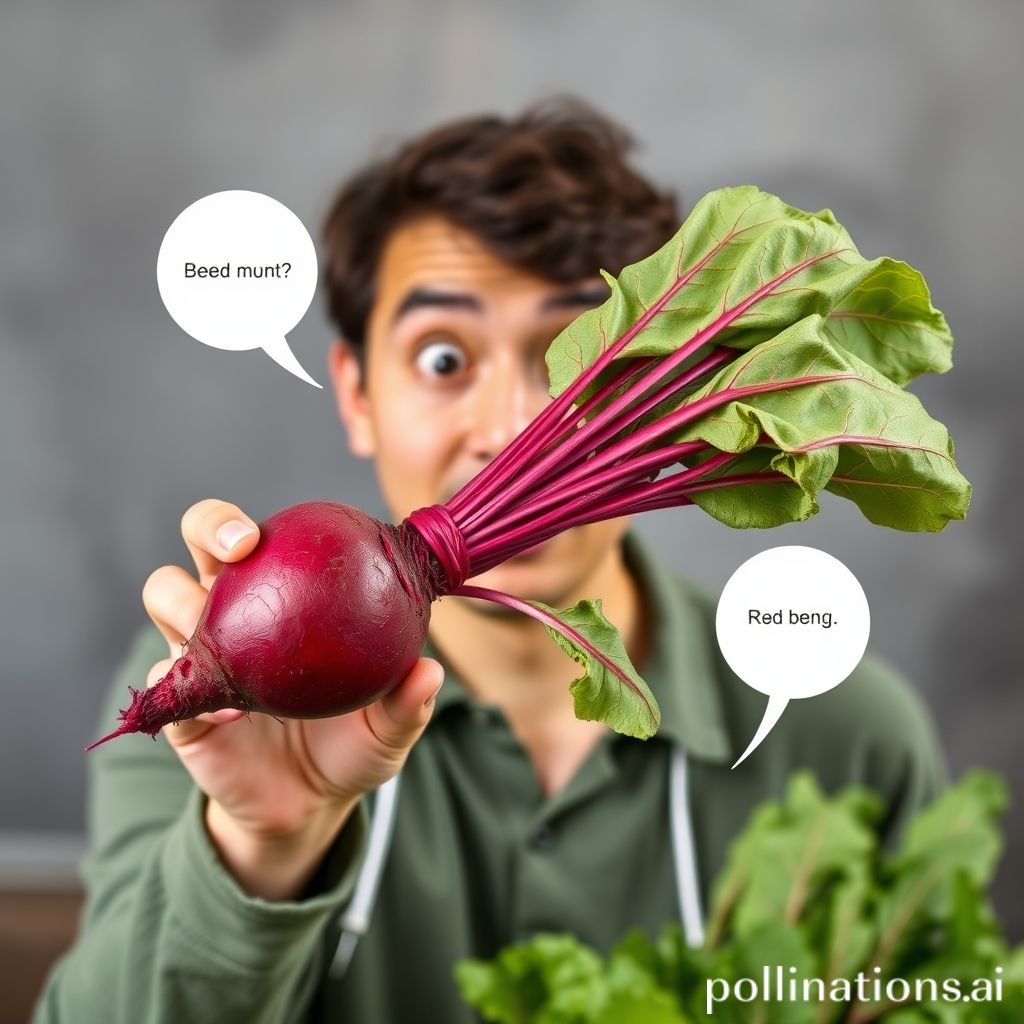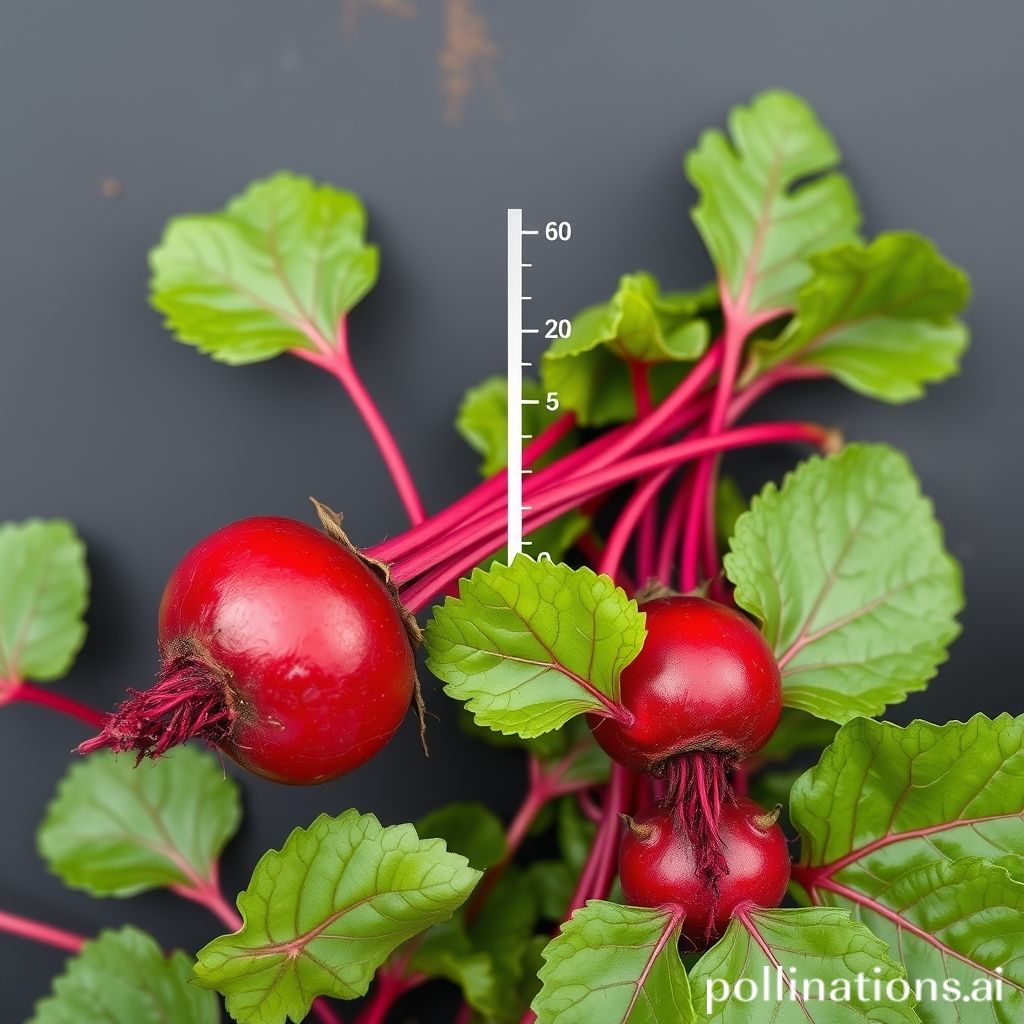How Long After Eating Beets Is Urine Red?
Beets are known for their vibrant red color, but what many people are curious about is how long it takes for their urine to turn red after eating beets. The answer to this question lies in the body’s digestion process.
As soon as beets are consumed, they are broken down in the stomach and the nutrients are absorbed into the bloodstream. From there, the pigments responsible for the red color, known as betalains, are filtered out by the kidneys and excreted in the urine. On average, it takes about 2-3 hours for the beets’ pigments to cause a noticeable change in urine color. Although, this can vary depending on factors such as metabolism and individual differences. So, if you’re eager to see that telltale red tint, just give it a couple of hours!

Table of Contents
Understanding Why Beets Cause Urine to Turn Red
1. How Do Beets Cause Urine to Turn Red?
Beets contain a pigment called betalain, which gives them their vibrant red color. When you eat beets, your body breaks down betalain into compounds called betacyanins. These betacyanins can be excreted in your urine, resulting in a reddish or pinkish discoloration.
2. What Compound is Responsible for the Color Change?
The main compound responsible for the color change in urine after eating beets is called betanin. Betanin is a type of betacyanin that gives beets their deep red hue. When your body metabolizes betanin, it can give your urine a similar reddish color.
3. Is Beet-Induced Urine Discoloration Harmful?
No, beet-induced urine discoloration is generally harmless and temporary. It is a normal physiological response to consuming beets and does not indicate any underlying health issues. Nonetheless, if you notice persistent or prolonged red urine without consuming beets, it is advisable to consult a healthcare professional to rule out any potential medical conditions.
It’s important to note that the timeframe in which urine turns red after eating beets can vary from person to person. Some people may experience the discoloration within a few hours, Meanwhile others may take longer. The intensity and duration of the discoloration can also be influenced by factors such as the amount of beets consumed and the cooking method used.
Expert Tips: Beets can turn urine red due to betalain pigments. Don’t worry, it’s harmless & temporary. Consult a doctor if red urine persists.Factors Affecting the Timing of Urine Discoloration after Consuming Beets
1. Variations in Digestion and Metabolism
The timing of urine discoloration after consuming beets can vary among individuals due to differences in digestion and metabolism. Factors such as gut health, enzyme production, and overall health can influence how quickly the body processes and eliminates the pigments responsible for the red color in urine.
2. Quantity and Form of Beet Consumption
The timing of urine discoloration can also be influenced by the amount and form of beets consumed. Consuming a larger quantity of beets or concentrated beet juice may lead to a faster appearance of red urine, compared to consuming smaller amounts or cooked beets.
3. Interaction with Other Foods or Medications
The timing of urine discoloration can be affected by the interaction of beets with other foods or medications. Certain substances or compounds present in other foods or medications may interfere with the absorption, metabolism, or elimination of beet pigments, potentially prolonging or accelerating the appearance of red urine.
| Factors Influencing the Timing of Urine Discoloration after Consuming Beets |
|---|
| Variations in Digestion and Metabolism |
| Quantity and Form of Beet Consumption |
| Interaction with Other Foods or Medications |
Typical Timeframe for Urine to Turn Red After Eating Beets
After consuming beets, the timeframe for urine discoloration can vary. Here are the different stages when urine can turn red:
1. Immediate Discoloration
Some people may experience immediate urine discoloration after eating beets. This quick reaction happens because beets contain pigments called betalains that are easily absorbed and excreted by the body.
2. 1-2 Hours After Consumption
For many individuals, urine may start changing color within 1-2 hours after eating beets. The timing depends on factors like metabolism and the amount of beets consumed.
3. 3-4 Hours After Consumption
In some cases, urine may not turn red until 3-4 hours after beet consumption. Factors like digestion and the body’s processing and elimination of the pigments can affect this delayed timeframe.
4. Longer Than 4 Hours After Consumption
Although less common, there are instances where urine may not show any discoloration until longer than 4 hours after eating beets. This can happen in individuals with slower digestion or those who have consumed a large amount of beets.
It’s important to note that the intensity and duration of urine discoloration can vary among individuals. Factors like hydration levels and overall health can also influence the appearance of red urine after eating beets.
Apprehending the typical timeframe for urine to turn red after eating beets can help individuals monitor the effects of beet consumption on their body and alleviate any concerns about the discoloration being a sign of an underlying health issue.

Tips for Reducing the Intensity or Duration of Beet-Induced Urine Discoloration
1. Cook Beets Before Eating
Cooking beets before consumption can help decrease the intensity of urine discoloration. When beets are cooked, some of the pigments responsible for the red color break down, resulting in less noticeable changes in urine color.
2. Mix Beets with Acidic Ingredients
Combining beets with acidic ingredients can help shorten the duration of urine discoloration. The acidity in certain foods aids in breaking down the pigments in beets more quickly, allowing them to pass through the body faster.
3. Increase Water Intake
Drinking plenty of water can dilute the pigments from beets in the urine, making the discoloration less noticeable. Staying hydrated can also help flush out these pigments more efficiently.
4. Allow Sufficient Time for Beet Digestion
Beets may take some time to be fully digested and metabolized by the body. Giving your body enough time to process the beets can help reduce the duration of urine discoloration. It is important to note that individual digestion rates may vary.
| Information |
|---|
| Beet pigments, known as betalains, are responsible for the red color in urine. |
| Some individuals may experience faster or slower urine discoloration after eating beets. |
| Beet discoloration of urine is harmless and temporary. |
Other Potential Effects of Consuming Beets on Urine and Stool Color
1. Pink or Red Stools
Consuming beets can sometimes cause pink or red stools, a phenomenon known as beeturia. This happens because beets contain pigments called betalains, which can temporarily change the color of your stool. The timing of when this change occurs can vary from person to person, but it usually happens within 24 to 72 hours after eating beets.
2. Darkened Urine without Red Coloration
In addition to pink or red stools, some people may notice that their urine becomes darker after consuming beets. It’s important to note that this darkening of urine doesn’t always coincide with the appearance of a red color. The timing of when your urine darkens can also vary, typically occurring within a few hours to a day after eating beets.
It’s important to understand that the effects of beet consumption on urine and stool color can vary depending on factors such as your metabolism, the amount of beets you eat, and how they are cooked. In the course of these effects are generally harmless and temporary, if you have any concerns or experience prolonged or severe changes in urine or stool color, it’s recommended to consult a healthcare professional.
Beets offer many health benefits and are packed with essential nutrients. Their vibrant color and unique properties make them a popular choice in various culinary dishes. Notwithstanding, it’s important to be aware of these potential effects to avoid unnecessary concern or confusion about changes in urine and stool color after eating beets.
Conclusion
The timeframe for urine to turn red after eating beets varies from person to person. Meanwhile some individuals may notice the discoloration within a few hours, others may experience it the next day.
The pigment responsible for this phenomenon, betalain, is not fully absorbed and may take time to appear in the urine. It is important to note that the intensity and duration of the red urine can also differ based on factors like beet consumption quantity and individual metabolism. If you notice red urine after eating beets, there is no need to worry as it is a harmless and temporary effect.
Faq about Beet-Induced Urine Discoloration
FAQ 1: Can beet-induced urine discoloration be a sign of a medical condition?
Beet-induced urine discoloration is typically harmless and not a sign of a medical condition. It is a known phenomenon that occurs due to a compound called betanin, present in beets. The pigment from beets is not harmful and is usually excreted in urine without any adverse effects.
FAQ 2: How long does beet-induced urine discoloration typically last?
The duration of beet-induced urine discoloration varies from person to person. In most cases, it lasts for about 24 to 48 hours. In contrast, some individuals may experience the discoloration for a shorter or longer period.
FAQ 3: Are there any other foods that can cause urine discoloration?
Yes, there are other foods that can cause urine discoloration. Certain foods like blackberries, rhubarb, and asparagus can also lead to changes in urine color. In contrast, the intensity and duration of discoloration may differ compared to beet-induced urine discoloration.
FAQ 4: Can beet juice also cause urine discoloration?
Yes, beet juice can also cause urine discoloration. Similar to consuming whole beets, the pigments from beet juice can pass through the digestive system and result in red or pink-colored urine.
FAQ 5: Is beet-induced urine discoloration a cause for concern?
Beet-induced urine discoloration is generally not a cause for concern unless accompanied by other abnormal symptoms. If you experience any other unusual symptoms or have concerns about your health, it is recommended to consult a healthcare professional for further evaluation.
Read Similar Post:
1. Improving Liver Health: The Benefits of Beetroot for Fatty Liver
2. Exploring the Impact of Beet Juice on Liver Health: A Comprehensive Analysis

